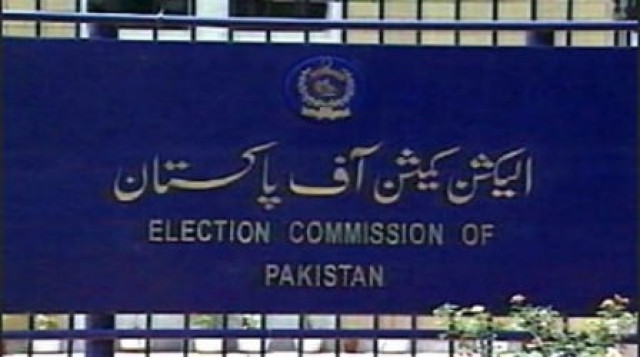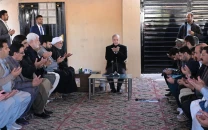Stakeholders input: ECP issues draft code of conduct
Puts bar on using public, private property without permission, sets conditions on media.

Election authorities have sent a draft of the revised code of conduct for political parties, media, polling staff, security personnel and election observers, to be implemented for the next general elections, to all stakeholders for their input.
The Election Commission of Pakistan (ECP) has decided to give the chief election commissioner the power to take punitive action, including disqualification, against candidates defying the code.
The ECP has asked all political parties to send their comments within two weeks and in case comments are not received, it will be assumed that they have agreed with the draft as the final document.
Public, private property not to be used for electioneering
Under the new code of conduct, no contesting candidate would be allowed to hoist or fix party flags on any public or private property without permission and payment.
Furthermore, wall chalking as part of an election campaign shall be prohibited in all forms. No person or a political party shall affix posters, hoardings or banners larger than the sizes prescribed by the ECP.
President also barred
According to the rules, contesting candidate will not announce or inaugurate any development project after the announcement of the election schedule till the day of polling.
The president, speaker/deputy speaker of an assembly, chairman/deputy chairman senate, prime minister, federal ministers, ministers of state, governors, chief ministers, provincial ministers and advisors to the prime minister and the chief ministers and other public office holders shall not combine their official visits with election campaign.
This provision will also be applicable to the Caretaker set-up.
Transport not to be
provided
Under the new rules, political parties, contesting candidates and their supporters will not be allowed to use any vehicle to transport to or from the polling station any elector except himself and members of his immediate family.
The political parties shall not encourage or enter into formal or informal agreements debarring women from becoming candidates or exercising their right of vote in an election.
Canvassing for votes is prohibited within a radius of 400 yards of the polling station.
Expenses to be documented
No transaction towards election expenses shall be made through an account other than the account opened for the purpose, according to the commission’s new draft. All transactions relating to the election expenses shall be entered with GST registered firms.
Political campaign through public exchequer disallowed
Issuing of advertisements at the cost of public exchequer in newspapers and other media, and misuse of official mass media during the election period shall be avoided by the federal, provincial and local governments, the draft states.
The candidates shall firmly restrain their workers from exerting pressure against the print and electronic media.
Code of Conduct for Media
Under the new rules, radio/ television channels will not be allowed to broadcast and print media not allowed to publish anything that adversely affects the public opinion against a particular political party or a candidate.
The media shall refrain from disseminating any information about a political party or a candidate which is not supported by cogent evidence about any election related activity. The print and electronic media shall only announce and publish authentic election results issued by the Presiding Officer, Returning Officer or the ECP.
Remarks about personal life of an individual shall be avoided in print and electronic media. Radio/TV channels shall not accept any form of donations that might influence the exercise of their professional responsibilities.
PEMRA will monitor the coverage given to political parties and candidates for their election campaigns.
Published in The Express Tribune, November 9th, 2012.



















COMMENTS
Comments are moderated and generally will be posted if they are on-topic and not abusive.
For more information, please see our Comments FAQ